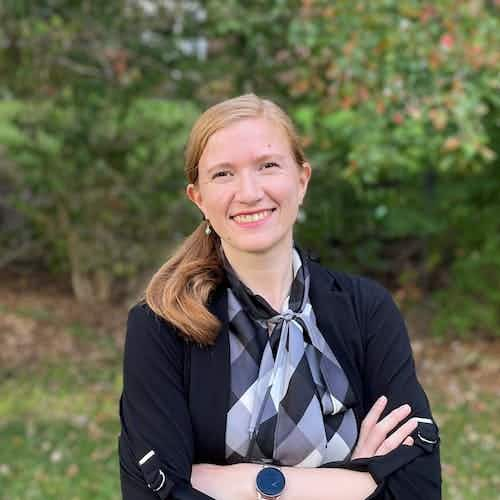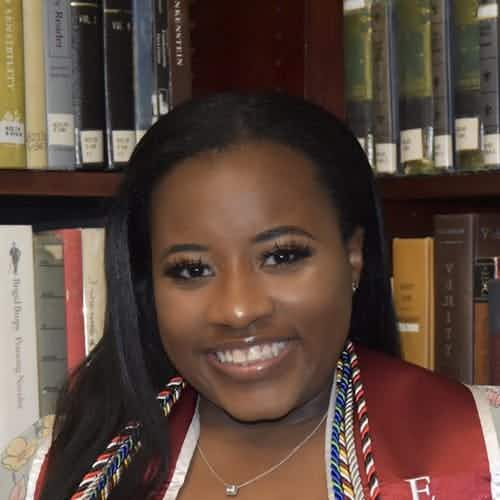Understand How Criminal Law Works
Law: From Crime Scene to Conviction
Criminal lawyers argue some of the toughest legal cases: everything from illegal drug sales to murder. In this compelling course, you’ll delve into the anatomy of a criminal case. Learn through the lens of both prosecutors and defense attorneys while studying the process from evidence and witness interviewing to sentencing. Understand 4th Amendment protections regarding search and seizure, explore the role motions play in resolving criminal cases, learn the difference between a hearing and a trial, and gain insight into the role of the judge and the jurors. If you believe you have what it takes for criminal law, this course is for you.

Go Inside the Courtroom
How You Will Benefit:
- Learn to think like a lawyer
- Analyze evidence to determine what happened in the timeline of the crime
- Know how to argue differing perspectives: defense versus prosecution
- Describe the timeline of, and those involved in, a criminal case
- Explore the factors that lead to wrongful convictions
- Demonstrate the analytical skills needed to succeed as a criminal lawyer
- Earn a Certificate of Completion from Wake Forest University

Apply Now for the Next Available Course
3 Learning Advantages Designed for You
Final Capstone Project
The course culminates with a final project that allows you to:
- Act as an appellate judge for a case that you have studied in the course
- Issue an opinion assessing the earlier decision in which the defendant was found guilty, and determine whether the evidence was: properly admitted, ample enough to prove guilt and whether the sentence was correct and reasonable
- Use any media you prefer — text, video, photography, PowerPoint
Mentoring
You’ll receive personal guidance from a mentor who can support you and answer questions as you deepen your learning experience. You can expect:
- Encouragement and direction on all assignments
- Inspiration, motivation and confidence to help you succeed
- Brainstorming and ideation help as you prepare for your final Capstone project
Flexible Learning
- 100% online, works with your schedule
- You’ll learn through engaging video—tune in anytime that works for you
- 30 hours of total instruction and course work, including engaging multimedia simulations and curated assignments for which you will receive guidance and support
Meet Your Online Immersion Faculty Member

Professor Eileen Prescott, Project Director for Wake Forest University Law School’s Accountable Prosecutor Project
Eileen Prescott is a passionate criminal law attorney, having worked in two prosecutor offices during her time at University of Chicago Law School. She went on to work as a prosecutor in the Philadelphia District Attorney’s Office where she specialized in federal habeas cases involving state convictions. Professor Prescott now directs research on prosecutor transparency and responsiveness to their communities, in addition to teaching at Wake Forest School of Law.
Meet the Mentors

Ethan
Undergraduate student at Wake Forest University with a focus on pre-law.

Courthney
Holds a Bachelor of Arts degree in Political Science.

Kevin
A corporate litigator for over a decade specializing in antitrust, securities, and white collar crime. He's an LSAT instructor for Kaplan, where he earned the title Outstanding Faculty of the Year in 2019, as well as head coach of a high school mock trial team.
How to Apply:

It’s easy. No transcripts or letters of recommendation are required. Just provide some basic information and tell us why you wish to take this program.
NOTE: please submit all application materials in English.
Begin the guided process. It should take only a few minutes of your time to answer the questions.
Begin the guided processWant to know more?
Sign up for more information and we’ll be in touch.
Frequently Asked Questions
How will you be graded? What are assignments like? How much time do you get to turn around a project? When do you find out if you’re accepted?
Answers to your questions hereScholarships
We offer need-based scholarships for participating students who exhibit high potential and an inability to pay the full tuition.
- If you haven’t applied to the program, apply here. After submitting your application, click “Apply for a need-based scholarship” on the confirmation page to request a scholarship.
- If you’ve already applied to the program, sign in to your profile to check your scholarship status. If we don’t have a scholarship request on file, click “Apply for a need-based scholarship” to request a scholarship.
The University reserves the right to modify the course as may become necessary.